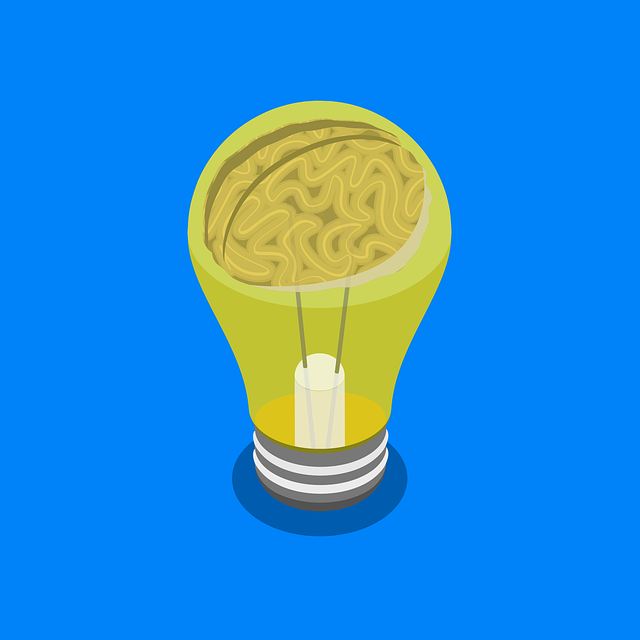Cognitive Behavioral Therapy (CBT) is an evidence-based approach for adolescent anxiety, targeting negative thought patterns and behaviors through structured sessions. It teaches teens to identify triggers, challenge anxious thoughts, practice relaxation techniques, and develop healthier coping strategies, improving overall mental health. Parents can support CBT at home by creating a safe space, educating themselves on the therapy, guiding exercises, and scheduling regular check-ins.
Adolescent anxiety is a growing concern, with many young people facing significant challenges in their daily lives. This comprehensive guide explores Cognitive Behavioral Therapy (CBT), an evidence-based approach specifically tailored to address teen anxiety. We delve into the causes and symptoms of this common issue, providing insights that help parents and caregivers recognize when CBT might be the solution. Discover how CBT techniques can empower teens to manage anxiety effectively.
Understanding Adolescent Anxiety: Causes and Symptoms
Adolescent anxiety is a growing concern, with many young people experiencing significant stress and worry that can impact their daily lives. This period of life is often characterized by emotional intensity and sensitivity, making it vulnerable to various factors that can trigger anxiety disorders. Understanding the causes and symptoms is crucial when considering effective treatment options, such as cognitive behavioral therapy for adolescents (CBT).
Common causes include social pressure, academic expectations, peer relationships, and family dynamics. Symptoms may manifest as excessive fear, avoidance behaviors, restlessness, irritability, and difficulties concentrating. CBT offers a structured approach to help adolescents identify and challenge negative thought patterns and behaviors contributing to their anxiety. By learning coping strategies and gaining insights into their thoughts and feelings, young people can develop healthier ways of managing anxiety and improve their overall well-being.
Introduction to Cognitive Behavioral Therapy (CBT)
Cognitive Behavioral Therapy (CBT) is a highly effective treatment approach tailored to address the unique challenges faced by adolescents struggling with anxiety disorders. CBT focuses on the intricate relationship between thoughts, feelings, and behaviors, aiming to help young individuals identify and challenge negative thought patterns that contribute to their anxiety. By understanding these cognitive processes, CBT empowers adolescents to develop healthier coping strategies and improve their overall well-being.
This evidence-based therapy involves collaborative goal-setting and problem-solving between the therapist and the adolescent. It encourages active participation and self-reflection, teaching essential skills to manage anxiety in daily life. Through structured sessions, CBT provides a safe space for adolescents to explore their thoughts and emotions, fostering a deeper understanding of their anxiety triggers and providing tools to navigate these challenges effectively.
CBT Techniques Tailored for Teens
Cognitive-behavioral therapy (CBT) offers a range of techniques specifically tailored to address adolescent anxiety, recognizing the unique challenges and developmental stages of this demographic. One such technique is thought recording, where teenagers learn to identify and challenge negative or distorted thinking patterns. By keeping a journal, they can visually represent their thoughts and emotions, making it easier to recognize unhelpful cognitive distortions.
Additionally, CBT for teens often incorporates relaxation exercises and mindfulness practices. These techniques help adolescents manage anxiety symptoms by teaching them to stay grounded in the present moment, regulate breathing, and relax their bodies. Such skills are invaluable in mitigating anxiety’s impact on daily life and fostering resilience.
Implementing CBT: Tips for Parents and Caregivers
Implementing Cognitive Behavioral Therapy (CBT) at home can be a powerful tool for supporting adolescent anxiety. As parents and caregivers, active engagement in this process is key to its success. Start by creating a safe and non-judgmental space where your teen feels comfortable discussing their thoughts and feelings. Encourage open conversations about anxiety triggers and coping mechanisms, normalizing these discussions to reduce potential stigma.
Educate yourself on CBT principles, including identifying negative thought patterns and replacing them with more balanced perspectives. This knowledge will enable you to guide your teenager through exercises like thought recording and challenge, where together, you can examine and reframe anxious thoughts. Regularly schedule check-ins to track progress, celebrate successes, and adjust strategies as needed, fostering a collaborative approach to managing anxiety effectively.
Cognitive-behavioral therapy (CBT) offers a powerful and effective approach to managing adolescent anxiety, providing teens with valuable tools to confront and overcome their fears. By understanding the root causes and implementing tailored CBT techniques, parents and caregivers can play a pivotal role in supporting their teen’s mental well-being. This evidence-based method equips young individuals with the skills to challenge negative thought patterns, reducing anxiety symptoms and fostering resilience. With dedicated practice and support, cognitive-behavioral therapy for adolescents can lead to lasting improvements, enabling them to navigate life’s challenges with increased confidence and a sense of control.
